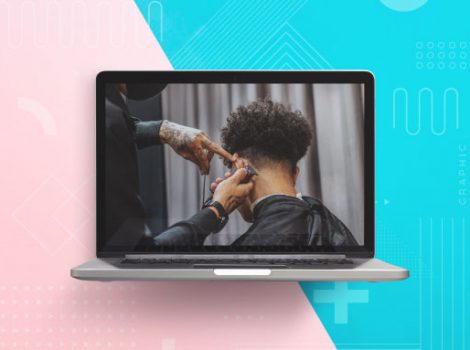Before I begin I have to say, it kills me to write this post. I’ve been an avid supporter of Apple for many years, but my experiences with Apple over the past few years have made me wonder if Apple cares about their customers in Africa.
If you’re moving to Botswana with your Apple device(s), you must understand there is no official Apple support in Botswana. If or when you do experience issues with your Apple device, Botswana is one of the last places you want to be.
Of course, a brand new Apple device comes with the option of the Apple Care warranty, but in fairness, Apple devices are not supposed to break down. These magnificent machines are so sophisticated and exceptional, your warranty is likely to expire before any potential problems arise. In my experience, Apple doesn’t really repair things anyway. If issues can’t be resolved relatively easily, they’ll simply replace the device.
Replacing, upgrading or trying to fix an Apple device in Botswana is quite expensive. Southern Africa is Samsung country, so there are few Apple users and therefore it is difficult to source spare parts. The older your device, the worse it is.
For example:
One of my worst experiences with an Apple device was the day my MacBook Pro was accidentally introduced to coffee. Long story short, the coffee initially damaged the keyboard and I couldn’t source a replacement locally, so I had to use eBay (UK). Purchasing items online can be a problem, as many sellers in Europe won’t post items to Africa.
The replacement keyboard worked, but the damage was more severe. The machine will no longer boot up properly and all I see is a grey screen. Local technicians have speculated the motherboard needs replacing, which could cost around P8000 (£600/$760) and could take weeks or months depending on whether the part could be sourced.
Two years later and unfortunately my MacBook Pro remains inoperative. Obviously, I can’t hold Apple accountable for accidents, as that would be unfair. This situation highlights the hassle of trying to fix or replace an Apple device in Botswana.
I have encountered a number of issues that I assumed Apple would be able to resolve but discovered Apple Support is not as effective as you would expect.
Foreign SIM
When I arrived in Botswana I purchased a local SIM card, but it didn’t work. I took my phone to a local phone repair guy (I’ll resist the temptation of publishing his identity) and without even looking at the phone, he said it would cost around P3500 (£260/$330) and he’d need to keep the phone for 4-6 weeks. My sixth sense for BS peaked and so I left… with my iPhone!
I made an international call to Apple Support and the support agent suspected the phone was locked to my previous carrier in the UK. I explained this was impossible, as I knew my phone was unlocked, but this is how the call ended. My belongings were being shipped from the UK and when I finally received my iMac, unbeknown to me I found the solution. I needed to connect my iPhone to the original computer I used to register the iPhone. All I had to do was permit access to the new SIM card. Something I wasn’t aware of and neither was the Apple Support agent I spoke to.
This left me wondering…
• Why didn’t Apple Support know this was the solution?
• I didn’t find this solution online, so how would I have ever known this?
• What would I have done had I sold my iMac (to raise extra funds) before I left the UK?
• I had visited an Apple Store before I left the UK to upgrade my iPhone. I told the “genius” I was relocating overseas. Did the genius not know this was a potential problem?
It kind of feels like there are issues Apple isn’t aware of or hasn’t had to resolve before. There are countless websites with all kinds of Apple advice, although I never find my specific problem. Plus Apple geeks have the annoying tendency to diagnose worst-case scenarios and put the fear of God into you. Some of them communicate information like their audience is the reincarnation of Steve Jobs.
Two-Factor Verification
Two-factor verification has been the worst problem I’ve experienced so far, in terms of the actual issue and the frustration of dealing with Apple Support. For anyone who doesn’t know, two-factor verification is an added layer of security that enables Apple users to securely login to their Apple accounts and iCloud. It requires the user’s “trusted Apple devices” to receive security codes to verify their identity.
I recently discovered I was no longer receiving two-factor verification codes on any of my trusted devices. As it stands there is no simple solution to this problem. Apple security has become too sophisticated and too flashy without any real purpose. When I purchased my iPhone 5S, I had to give the device my thumbprint, which was a rigorous process. I can only use my thumbprint to sign into my phone thus proving my identity, yet I can’t use my thumbprint to prove my identity in order to retrieve security codes! Why?
Below are my frustrations of dealing with Apple Support and some tips…
Don’t select Africa as your region. If you select Africa as your region when trying to contact Apple Support, you won’t be able to progress any further because this region has no online support. You have to lie and select a region that is supported.
Serious issues will require YOU to make an international call to Apple Support direct. Apple does provide a call back service, but not if you are in Botswana. Apple is unable to call Botswana according to four of the five support agents I spoke to.
If you do call Apple Support direct, use Skype if it is possible. Unbeknown to me, calling a toll-free number via Skype (no matter where you are in the world) is free. Something I wasn’t aware of and by all accounts neither is Apple, otherwise, I would expect it to be noted on their website.
Expect a lengthy call. I made three calls to Apple Support and spent a total of approximately 180 minutes on the line with support agents. I spent a total of approximately 60 minutes on hold.
Why did the calls last so long? Quite simply because they repeated the same procedures I had conducted during previous calls. I would have thought it was unnecessary as they had my case ID and could see I had already unsuccessfully attempted them with previous agents.
Apple engineers might just surprise you, but not in a good way. My case was marked as “urgent” and yet it took almost a week for the engineers to respond. What’s worse is their feedback was in no way helpful. They recommended I contact my carrier to make sure they weren’t blocking ‘smart codes’ to my number. They also revealed I wouldn’t be able to receive the verification code on my iMac because it is out of sync with iCloud.
Firstly, why are the engineers not contacting my carrier on my behalf? I have no technical understanding of what they were asking me to query, so I would be ill-placed to address any queries fired back. Secondly, they didn’t explain how they know my iMac is out of sync with iCloud. What could have caused it and how to sync everything back? The so-called experts were supposed to provide a solution and left me with two additional complications.
To this day my issue remains unresolved and I cannot access my Apple account. This means I cannot upgrade or purchase any Apple devices, as every device will require me to register the device by signing into my account. The downside to two-factor verification is it becomes an absolute pain in the arse when it doesn’t work!! Apple has effectively created a monster that makes it impossible for you or Apple to easily rectify. After nearly two months I am still trying to resolve this issue. I am currently expecting a call from a specialist and I will update this post with the outcome.
Have you experienced any problems with Apple Support whilst overseas? Let us know and comment below.
Picture credit: Trees by Fabian Irsara




Oh my goodness! An excellent article man. Many thanks!